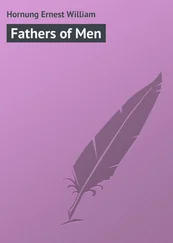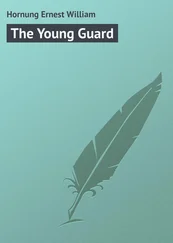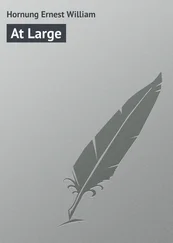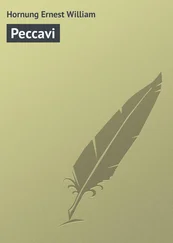Ernest Hornung - Some Persons Unknown
Здесь есть возможность читать онлайн «Ernest Hornung - Some Persons Unknown» — ознакомительный отрывок электронной книги совершенно бесплатно, а после прочтения отрывка купить полную версию. В некоторых случаях можно слушать аудио, скачать через торрент в формате fb2 и присутствует краткое содержание. Жанр: foreign_prose, на английском языке. Описание произведения, (предисловие) а так же отзывы посетителей доступны на портале библиотеки ЛибКат.
- Название:Some Persons Unknown
- Автор:
- Жанр:
- Год:неизвестен
- ISBN:нет данных
- Рейтинг книги:4 / 5. Голосов: 1
-
Избранное:Добавить в избранное
- Отзывы:
-
Ваша оценка:
- 80
- 1
- 2
- 3
- 4
- 5
Some Persons Unknown: краткое содержание, описание и аннотация
Предлагаем к чтению аннотацию, описание, краткое содержание или предисловие (зависит от того, что написал сам автор книги «Some Persons Unknown»). Если вы не нашли необходимую информацию о книге — напишите в комментариях, мы постараемся отыскать её.
Some Persons Unknown — читать онлайн ознакомительный отрывок
Ниже представлен текст книги, разбитый по страницам. Система сохранения места последней прочитанной страницы, позволяет с удобством читать онлайн бесплатно книгу «Some Persons Unknown», без необходимости каждый раз заново искать на чём Вы остановились. Поставьте закладку, и сможете в любой момент перейти на страницу, на которой закончили чтение.
Интервал:
Закладка:
"Ah," said she, "in your books! Twice you have allowed the heroine to marry the hero in your life too."
"I was under the impression, my dear, that we were talking about my books."
"But I am thinking about Ida. You needn't look at the clock, Wolff. You know very well that you never leave the house before ten minutes past, and it isn't five past yet. You may look at your watch if you like, but you will see that my clock is, if anything, fast. I say that you raised no opposition in the case of either Laura or Hetty."
"Didn't I?" exclaimed the novelist with a grim chuckle. "By Jove, I did my worst! If that wasn't very bad you must remember that we knew all about Charles and Macfarlane. It wasn't like young Overton. By Jove, no!"
"Young Overman's is better romance," murmured Mrs. Mason.
"Therefore, it is worse real life. I do wish you would see with me that the two things clash if you try to bring them together. Frankly, my dear, I wish you wouldn't try. I make a point of never doing so – that's why I don't live over the shop."
"Wolff, Wolff, say that sort of thing at your club! With me you can afford to be sincere. Why, you have put Ida's hair and eyes into every book you have written since she grew up. The things don't clash. If you borrow from Ida for your books, I think you ought to be prepared to pay her back out of your books too, and allow her to live happily ever after, like all the rest of your heroines."
There were moments when Wolff Mason realised that the one-sided game of letters has a bad effect on the argumentative side of a man's mind. The present was one. He looked again at his watch, and replaced it very hurriedly in his waistcoat pocket.
"My dear, I really must be going."
"One minute more – just one," pleaded Mrs. Mason, and her voice was as soft as ever it had been thirty years ago. "I want your hand, Wolff!"
The novelist came round to the bedside and sat down for a few moments on the edge. During those few moments two frail, worn, thin hands were joined together, and Wolff Mason's spectacles showed him a moisture in his wife's eyes – not tears, but a shining film which only made them more lovely and sweet and kind. That film had come over them in the old days when they were both young and he had told her of his love. On very rare occasions he had described it in the eyes of his dark-eyed heroines, and never without a hotness in his own. He rose suddenly. His hand was pressed.
"You will reconsider it, Wolff?"
"My dear, she is our last."
"My love, we have each other!"
Some moments later, when Wolff Mason had closed the door behind him, he had to open it again to hear what it was that his wife was calling after him.
"Mind you don't make the general too inhuman, Wolff, or I shall be so disappointed in you both!"
The novelist laughed. So did his wife. The secret of their complete happiness was not love alone. It was love and laughter.
Nevertheless, Wolff Mason drove to the office of the Mayfair Magazine in a less literary frame of mind than he either liked or was addicted to at this early hour of the day. It is not true that the novelist constructed all his stories in the hansom which deposited him in Paternoster Row at a quarter to ten every morning, and in front of his own door at a quarter-past seven in the evening. That was the invention of the lady journalists who wrote paragraphs about Wolff Mason for the evening papers – those paragraphs his old-world soul abhorred. It is a fact, however, that he liked to get out of his hansom with more ideas than he had taken into it. He made it a rule to think only of his work on the drive in.
But this morning he was breaking all his rules: he had cut himself with his razor; he had left the house five minutes late, owing to a series of little domestic scenes of which his head was still full. And how he hated scenes outside his books! He treated the psychological moments in his own life as lightly, indeed, as in his novels, but the former worried him. This morning he had kissed Mrs. Mason with all the exuberance of a young man, and on coming downstairs, and finding Ida waiting for him with his tall hat and overcoat nicely brushed, and his gloves warmed on both sides, he had kissed her too, and so fondly as to bring out the same film on her sweet eyes as he had produced a few minutes before in those of her mother.
To begin the day by making people cry was peculiarly odious to the kind-hearted gentleman who held it the whole duty of a novelist to make people laugh; and those two pairs of dear eyes, so like each other in every look, duly accompanied him to the orderly, tobacco-scented room, where he edited Mayfair and wrote his own books. The clock on the chimney-piece stood at ten minutes to ten. He was five minutes late at this end also.
On a little table under the window lay the long envelopes and the cylinders of manuscript which had arrived since the day before. Wolff Mason lit a cigarette, and examined the packets without opening them. Thus he invariably began his official day, tossing aside the less interesting-looking missives for his weekly "clean sweep," and leaving on the little table work enough for the afternoon, mostly the work of previously accepted contributors, whose handwriting was familiar to the editor. These were the people who gave the trouble, the people who had sent in a good thing once. Not all of them did it twice.
The editor recognised this morning on one of the long envelopes the superscription of a most promising contributor who had done it thrice, but who had lately failed as many times in succession. Wolff Mason had never known a valued contributor go to the bad at such a pace; but this one had done such merry work in the beginning that there was hope for him still. At all events he could write, and must therefore be read carefully. The editor would have read him there and then, in the hope of a laugh, which he felt he needed, had he not been five minutes late as it was. At three minutes to ten he loaded four brier-wood pipes out of a stone tobacco-jar, set three of them in a row on his desk, and lit the fourth. When the hour struck the ink stood thick on certain symbols at the top of a clean sheet of unlined foolscap, and Wolff Mason was glancing over his previous morning's work.
The clock on the chimney-piece had a quiet, inoffensive tick, but this, and an occasional squeal from the novelist's pipe, which was exceedingly foul, were the only sounds within the editorial sanctum between ten and half-past that morning. The ink had dried upon the pen of as ready a writer as ever told agreeable stories in good English; at the half-hour all that had been written was the heading of the new chapter, and the number of the page (with a ring round it) in the right-hand top corner. Some ten minutes later Wolff Mason took up his second pipe, lit it, and began to write. He wrote for an hour, more rapidly and less gracefully than was his wont. Then he flung down his pen, lit the third pipe, and blew clouds of smoke against the square of blue framed by the upper sashes of the double window on his right. The novelist was in trouble. The best character in his book, the old general, was failing him sadly in the hour of need. It was necessary to the plot that this hearty, weather-beaten warrior should make a complete brute of himself in the boat-house on discovering his only daughter in the embrace of the young poet who inhabited cheap chambers in Mitre Court when he was at home. But the general had treated the poet as his own son hitherto, had taken his daughter to tea at the Mitre Court chambers, had himself invited their interesting tenant down to his country house for change of air; and he refused to be so inconsistent. It was a case of inventing something disreputable (afterwards to be disproved) against the poet; the general must only now have heard of it to justify his ordering his guest off the premises as the plot demanded. It was necessary and easy, but undeniably conventional, and it distressed the novelist, because he had not foreseen this contingency in the garden before breakfast. Moreover, for some reason or other, he felt his inventive faculty to be at its lowest vitality to-day. He did not ask himself what the reason was. He had at least got back to the world of fiction, and whatever their effects, the domestic scenes of the early morning were entirely forgotten.
Читать дальшеИнтервал:
Закладка:
Похожие книги на «Some Persons Unknown»
Представляем Вашему вниманию похожие книги на «Some Persons Unknown» списком для выбора. Мы отобрали схожую по названию и смыслу литературу в надежде предоставить читателям больше вариантов отыскать новые, интересные, ещё непрочитанные произведения.
Обсуждение, отзывы о книге «Some Persons Unknown» и просто собственные мнения читателей. Оставьте ваши комментарии, напишите, что Вы думаете о произведении, его смысле или главных героях. Укажите что конкретно понравилось, а что нет, и почему Вы так считаете.












